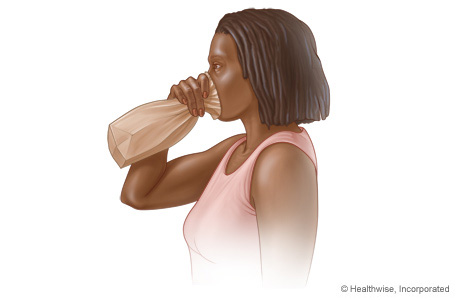Patient Education
Heart Health Library
Our Health Library does not replace the advice of a doctor. Please be advised that this information is made available to assist our patients to learn more about their heart health. Our providers may not see and/or treat all topics found herein.
Our Health Library information does not replace the advice of a doctor. Please be advised that this information is made available to assist our patients to learn more about their health. Our providers may not see and/or treat all topics found herein.
Using a Paper Bag to Control Hyperventilation
Current as of: July 31, 2024
Author: Ignite Healthwise, LLC Staff
Clinical Review Board
All Ignite Healthwise, LLC education is reviewed by a team that includes physicians, nurses, advanced practitioners, registered dieticians, and other healthcare professionals.
Browse our library of medical conditions and treatments
A body map to help you find and learn more about your symptoms.
Learn more about your diagnostic exam.
Get important information regarding your medications
Tips on how to stay healthy


